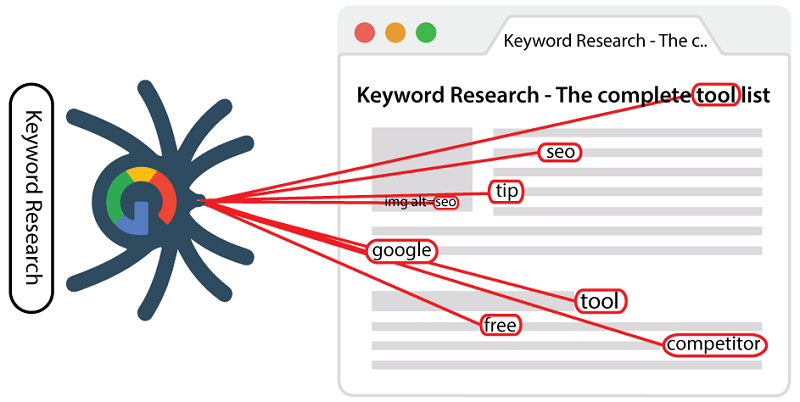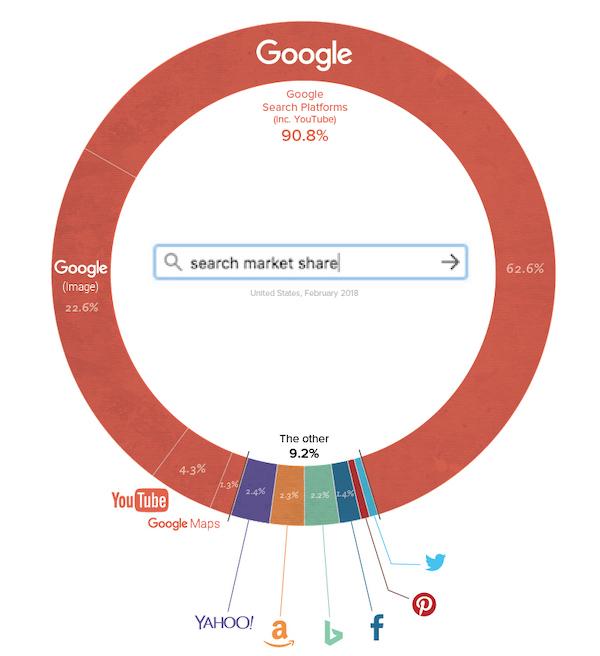Unlock the power of LSI keywords in SEO with our comprehensive guide – increase traffic and improve search engine ranking!

Image courtesy of via DALL-E 3
Table of Contents
Introduction to LSI Keywords
Have you ever wondered how search engines like Google help you find the most relevant information when you type something in the search bar? That’s where LSI keywords come into play. In this article, we will introduce you to the world of LSI keywords, what they are, and why they are crucial for making content easier to find online.
What Are LSI Keywords?
LSI stands for Latent Semantic Indexing, but don’t worry about the fancy name. LSI keywords are simply words and phrases related to the main keyword you use in your content. These additional keywords help search engines understand the context and relevance of the content better, making it easier for them to match your content with what users are searching for.
Why Use LSI Keywords?
Using LSI keywords in your content is like giving search engines a roadmap to guide them through your article or blog post. By incorporating these related terms naturally into your writing, you can improve your SEO (Search Engine Optimization) and make your content more searchable and relevant to your target audience. LSI keywords not only help search engines understand your content better but also enhance the overall user experience by providing more accurate and valuable search results.
How Search Engines Work
Search engines are like super-smart detectives on the internet. They help us find exactly what we’re looking for among the millions of web pages out there. But have you ever wondered how these search engines actually work their magic? Let’s dive into the fascinating world of search engines and uncover their secrets!
Crawling and Indexing
Imagine search engines as little robots that constantly roam the internet, scanning every web page they come across. This process is called crawling. These robots, also known as crawlers or spiders, collect information from websites and store it in a big database called an index. It’s like they’re creating a huge library of all the web pages they find so they can quickly retrieve them when you search for something.
Ranking Algorithms
Once the search engine has gathered all the information, it’s time to rank the web pages in order of relevance. Search engines use special formulas called algorithms to decide which pages should show up first when you search for something. These algorithms consider many factors, like the keywords on a page, the quality of the content, and how many other websites link to it. The goal is to provide you with the most helpful and relevant results for your search.
Finding LSI Keywords
When creating content for the internet, it’s essential to include LSI keywords to improve your chances of being discovered by search engines. But how do you go about finding these crucial keywords? Let’s explore some methods that can help you in this process.

Image courtesy of www.wordstream.com via Google Images
Using Keyword Tools
One effective way to discover LSI keywords is by using keyword tools. These tools, such as Google Keyword Planner, SEMrush, or Ahrefs, can provide you with a list of related keywords that you can incorporate into your content. By analyzing the suggestions provided by these tools, you can broaden the scope of your content and make it more relevant to search queries.
Using Search Suggestions
Another simple technique to find LSI keywords is by utilizing search suggestions offered by search engines like Google. When you type in your main keyword in the search bar, Google will display a list of related searches that users commonly make. By incorporating these suggestions into your content, you can align your material more closely with what users are looking for, thus increasing the likelihood of your content being discovered.
Using LSI Keywords in Your Content
When you’re creating content for your website or blog, it’s essential to use LSI keywords strategically. Incorporating LSI keywords can significantly boost your content’s visibility and relevance to search engines. Let’s explore how you can effectively use LSI keywords to enhance your content.
In Your Title and Headings
One key way to leverage LSI keywords is by including them in your title and headings. When search engines crawl your page, they pay close attention to these elements to understand the topic of your content. By incorporating relevant LSI keywords in your title and headings, you signal to search engines what your content is about, increasing the likelihood of ranking higher in search results.
In the Body of Your Text
It’s equally crucial to integrate LSI keywords naturally throughout the body of your content. Avoid the temptation to stuff your writing with keywords, as this can make your content seem forced and robotic. Instead, focus on weaving LSI keywords organically into your text to maintain a natural flow. By doing so, you create valuable content that is informative and engaging while also catering to search engine algorithms.
Examples of LSI Keywords
LSI keywords, or Latent Semantic Indexing keywords, are related words and phrases that are crucial for improving the searchability and relevance of online content. In this section, we will explore some examples of LSI keywords to help you better understand how they work.

Image courtesy of session-media.com via Google Images
Example for a Topic: ‘Puppy Training’
When creating content about ‘puppy training,’ incorporating LSI keywords such as ‘dog training,’ ‘housebreaking a puppy,’ and ‘puppy obedience’ can help search engines recognize the topic’s relevance. These related phrases expand the contextual understanding of the main keyword and contribute to a comprehensive discussion on training puppies.
Example for a Topic: ‘Healthy Eating’
For a topic like ‘healthy eating,’ including LSI keywords like ‘balanced diet,’ ‘nutrition tips,’ and ‘healthy recipes’ can enhance the content’s SEO performance. By integrating these related phrases naturally throughout the text, you provide additional context and depth to the subject matter, making it more informative and valuable to readers.
Benefits of Using LSI Keywords
LSI keywords offer numerous advantages when it comes to enhancing your content for both search engines and user experience. Let’s explore some of the key benefits below:
Improved SEO
By incorporating LSI keywords in your content, you signal to search engines that your content is comprehensive and relevant. This, in turn, can boost your search engine rankings and make your content more discoverable to users searching for related topics. LSI keywords help search engines understand the context of your content better, allowing them to match it with relevant search queries more effectively.
Better User Experience
Using LSI keywords not only benefits SEO but also enhances the overall user experience. When your content includes a variety of related terms and phrases, it tends to be more informative and valuable to readers. This leads to a higher likelihood of engaging users and keeping them on your page longer. Additionally, content that utilizes LSI keywords tends to flow more naturally, making it easier for readers to understand and enjoy.
Common Mistakes to Avoid
One common mistake to avoid when using LSI keywords is keyword stuffing. This happens when you excessively repeat keywords throughout your content in an unnatural way. Not only does this make your content hard to read, but it can also harm your SEO efforts. Search engines may penalize your website for this practice, as it goes against providing valuable and informative content to users.

Image courtesy of www.wordstream.com via Google Images
Ignoring User Intent
Another mistake to steer clear of is ignoring user intent. While it’s essential to incorporate LSI keywords strategically, it’s equally important to focus on creating content that is valuable and relevant to your audience. Writing solely for search engines without considering what your readers are looking for can lead to content that feels forced and disconnected. Remember, the ultimate goal is to provide users with helpful and engaging information, so always prioritize their needs and preferences.
Additional Resources
When it comes to optimizing your content with LSI keywords, there are several handy tools available to assist you. Tools like Yoast SEO, Google Analytics, and Moz can provide valuable insights into keyword research, content performance, and overall SEO strategies. These tools can help you identify the right LSI keywords to use and monitor how well your content is performing in search results.
Further Reading
If you’re eager to delve deeper into the world of SEO and LSI keywords, there are plenty of resources available for further learning. Consider exploring blogs, articles, or YouTube channels that specialize in SEO techniques and strategies. Websites like Search Engine Land, Moz Blog, and Backlinko offer in-depth guides and tutorials on how to effectively use LSI keywords to enhance your content’s visibility and user engagement.
Conclusion
Throughout this blog post, we have delved into the world of LSI keywords and how they can significantly impact your content’s visibility online. By incorporating LSI keywords, you are not only enhancing your SEO efforts but also improving the user experience for those engaging with your material. Let’s quickly recap the key takeaways before you embark on optimizing your content with these powerful keywords.

Image courtesy of www.wordstream.com via Google Images
Key Takeaways
LSI keywords, short for Latent Semantic Indexing keywords, are phrases related to your main keyword that help search engines understand the content better. They play a crucial role in improving SEO and making your content more discoverable and relevant to your target audience. Proper usage of LSI keywords can elevate your content above the digital noise and increase its visibility across search engines.
When it comes to finding LSI keywords, you can utilize tools like Google Keyword Planner, SEMrush, or Ahrefs to generate related phrases. Additionally, exploring search suggestions on search engines like Google can offer valuable insights into what users are searching for and how you can tailor your content to meet those needs.
Integrating LSI keywords seamlessly into your content is paramount. By strategically placing them in your titles, headings, and body text, you can avoid keyword stuffing and ensure a natural flow that enhances both your SEO performance and user engagement.
Remember, the benefits of using LSI keywords extend beyond just search engine rankings. By prioritizing readability and relevance, you can deliver a better user experience that keeps your audience engaged and coming back for more.
As you continue your journey in mastering LSI keywords and optimizing your content, keep in mind the common pitfalls to avoid, such as keyword stuffing and neglecting user intent. By staying informed and implementing best practices, you can set yourself up for success in the ever-evolving digital landscape.
Now armed with the knowledge and tools necessary to harness the power of LSI keywords, it’s time to elevate your content creation strategy and unlock new possibilities for growth. Embrace the potential of LSI keywords and watch as your online presence flourishes like never before.
Want to turn these SEO insights into real results? Seorocket is an all-in-one AI SEO solution that uses the power of AI to analyze your competition and craft high-ranking content.
Seorocket offers a suite of powerful tools, including a Keyword Researcher to find the most profitable keywords, an AI Writer to generate unique and Google-friendly content, and an Automatic Publisher to schedule and publish your content directly to your website. Plus, you’ll get real-time performance tracking so you can see exactly what’s working and make adjustments as needed.
Stop just reading about SEO – take action with Seorocket and skyrocket your search rankings today. Sign up for a free trial and see the difference Seorocket can make for your website!
FAQs about LSI Keywords
What Are LSI Keywords?
LSI keywords, which stand for Latent Semantic Indexing, are words and phrases that are closely related to the main keyword of your content. These words help search engines like Google understand the context and relevance of your content better. By including LSI keywords in your content, you can make it easier for people to find your website when searching online.
How Do LSI Keywords Help with SEO?
LSI keywords play a crucial role in improving your website’s SEO (Search Engine Optimization) because they help search engines determine the topic and relevance of your content. By using LSI keywords, you can increase the chances of your website ranking higher in search engine results pages, making it more visible to potential visitors.
Is Using LSI Keywords Compulsory?
While using LSI keywords is not mandatory, incorporating them into your content can significantly benefit your SEO efforts. Balancing the use of LSI keywords with maintaining readability and relevance in your content is key. By naturally integrating LSI keywords into your writing, you can enhance the overall user experience while also improving your search engine rankings.







